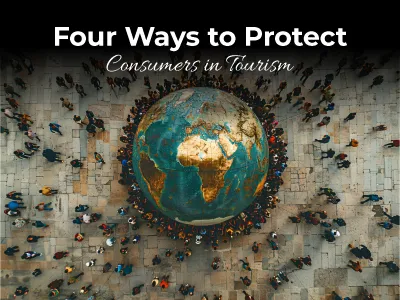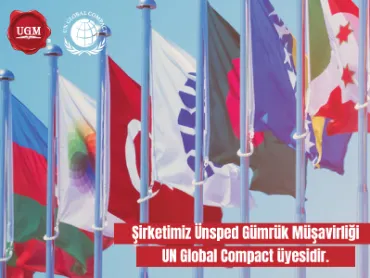
From access to information and dispute resolution to sustainable consumption, experts explain how to empower consumers in global tourism.
After recovering strongly from the COVID-19 pandemic, the tourism industry is booming with millions more people taking vacations with the start of summer in the Northern Hemisphere.
According to UN Tourism, the sector will directly contribute an estimated $3.3 trillion to global GDP in 2023, with total export revenues reaching $1.7 trillion, about 96 percent of pre-pandemic levels in real terms. However, international tourism, which powers economic growth and sustains livelihoods in many developing countries, has its challenges.
At a meeting convened by the UN Conference on Trade and Development (UNCTAD) from 1 to 2 July, intergovernmental experts are examining the work that needs to be done to promote sustainable consumption and production, as well as to protect the rights of tourists as consumers.
Teresa Moreira, Head of Competition and Consumer Protection at the UN Department for Trade and Development, said: “Consumer protection not only protects tourists but is beneficial for everyone as it improves the overall living environment and businesses that protect consumer rights are more competitive.”
The highlights of this expert meeting are as follows:
1. Open and Accessible Information
Experts underline the need to make tourists aware of their consumer rights, including how to detect and report fraudulent commercial practices.
In this context, destinations need to make information on tourism products and services easy to find and understand in different languages for the benefit of international travelers. For example, authorities in Paris, the capital of France, are stepping up efforts to improve access to tourist information and law enforcement ahead of the 2024 Summer Olympic Games.
“To guarantee consumers' confidence in Paris as a tourist destination, we have revitalized our consumer information platform to provide information in English and created an app for tourists coming to France,” said Sarah Lacoche, the country's director general for competition, consumer protection and anti-fraud.
2. Ensuring the Privacy of Consumer Data
As digital services become increasingly pervasive, consumer data privacy in tourism has emerged as a critical concern.
In this context, the United Nations consumer protection guidelines call on businesses to “protect consumers' privacy through a combination of appropriate mechanisms of control, security, transparency and consent regarding the collection and use of personal data”.
The guidelines also emphasize the need for robust consumer protection policies in marketing and tourism-related services. In this regard, UN Trade and Development is the UN's lead agency on consumer protection issues and promotes the guidelines in partnership with governments, businesses, and civil society organizations.
3. Sustainable and Responsible Tourism
There are growing concerns about mass tourism in some of the world's most popular destinations. Increased international tourism is leading to overcrowding in some destinations, not only reducing the tourism experience but also straining infrastructure and negatively impacting local communities and ecosystems. To turn the tide, countries need more sustainable and responsible tourism practices for both visitors and locals and more comprehensive policies to mobilize both consumers and businesses to protect biodiversity and preserve natural and cultural heritage.
“While protecting tourists as consumers, we must also protect our planet from the potential negative impacts of tourism,” said Shirish Deshpande, president of Mumbai Grahak Panchayat, a consumer protection organization in India.
4. Strengthening Consumer Confidence in Travel
Dispute resolution requires effective and transparent mechanisms, including alternative and online dispute resolution routes, which can guarantee equal access to justice for all tourists and ensure that they receive compensation without unnecessary costs, delays, and undue burdens.
In 2022, UN Tourism (then the World Tourism Organization), the UN's lead organization in the field of tourism, launched the landmark International Code for the Protection of Tourists, which sets minimum international standards for the protection of tourists as consumers and explores, inter alia, alternative dispute resolution for global travelers that is prompt, fair and without discrimination.
The Code addresses the fragmentation and existing inequalities in the rights of tourist consumers internationally by helping to develop and harmonize consumer protection standards worldwide through more transparent, effective legal and regulatory frameworks.
Stronger global cooperation is therefore needed to implement the Code and to continuously develop and harmonize minimum standards for the protection of tourists so that new risks such as digital markets, overcrowded destinations, or green packaging can be mitigated.
The rules support building trust in destinations, a critical component for economies that depend on international travel to generate much-needed resources for jobs and public revenues. “By addressing these challenges, the tourism sector can restructure, adapt to the changing needs and expectations of consumers, and contribute to sustainable development,” said Alicia Gómez, Director of Legal Affairs and International Standards, who also coordinated the development of these rules.
 Back
Back







